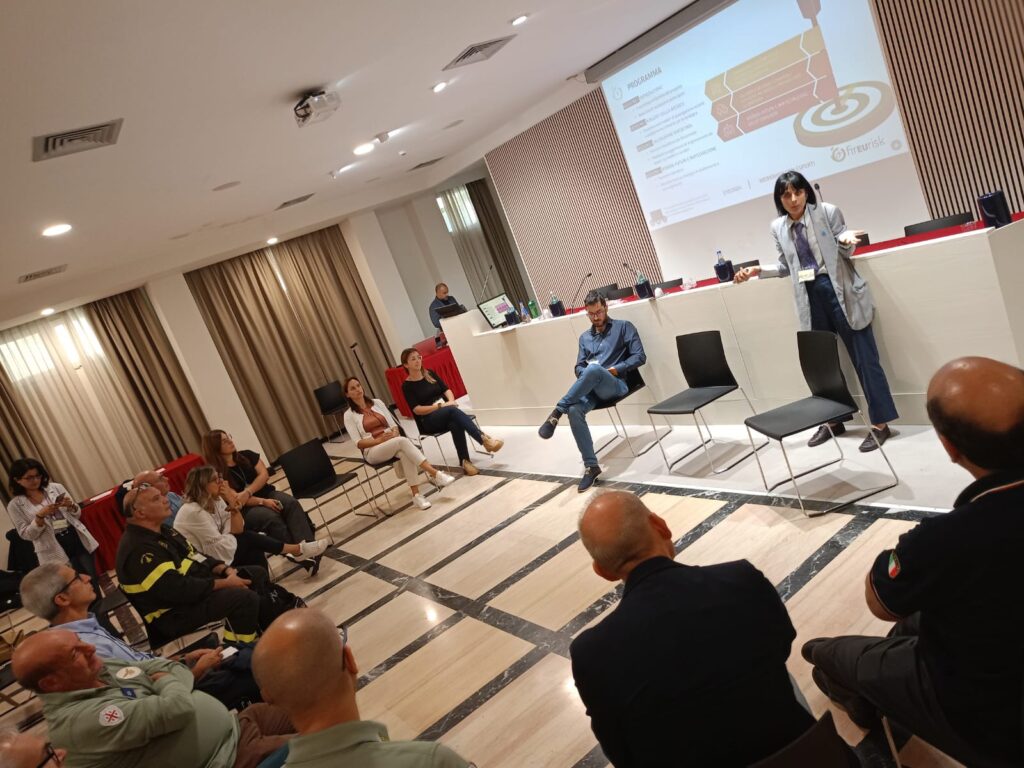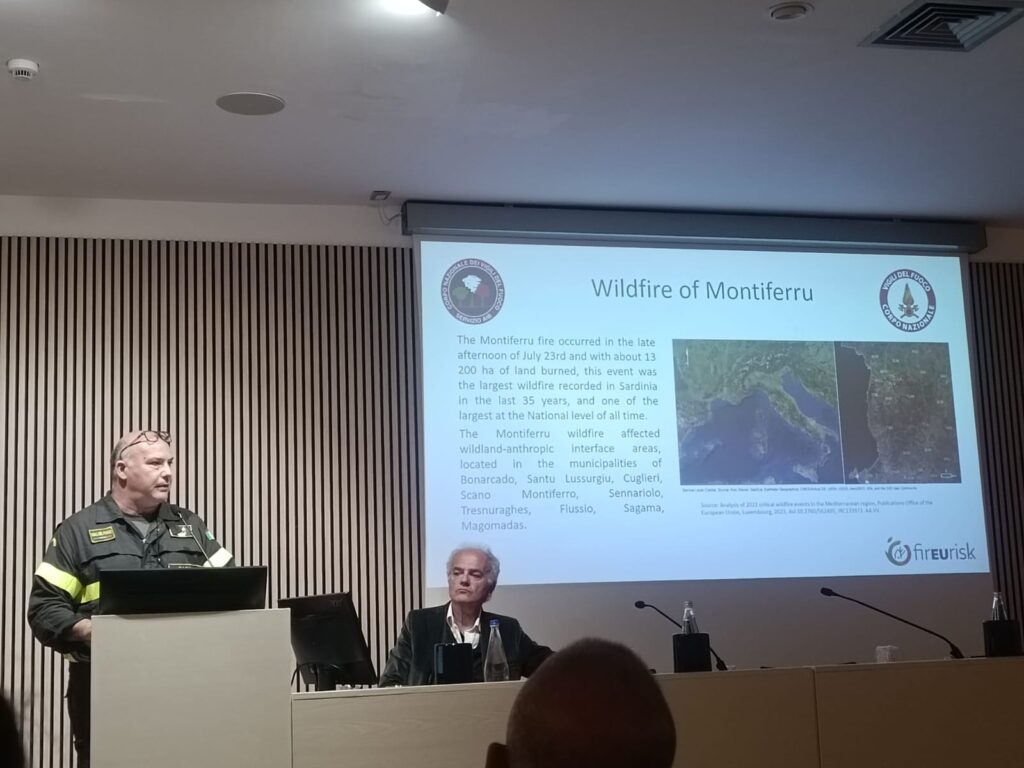From the 1st to the 3rd of October 2024, in the context of the FirEURisk meeting, the event “Fire management in Sardinia: challenges and opportunities” was held in Alghero, Sardinia, home to one of the FIRE-RES Living Labs. It was a great opportunity to strenghten ties with other projects in the wilsdifre prevention sector.

Along with the Fo.Re.S.T.A.S. Agency, leading the Living Lab, the meeting gathered major institutional stakeholders including the Regional Civil Protection, the Forestry Corps, the ARPAS Agency, and the Fire Brigade. Together, these groups explored Sardinia’s fire risk landscape, focusing on how risk assessments and predictive strategies can mitigate and manage wildfire impacts under evolving climatic and socio-economic conditions. Discussions underscored the necessity of adapting fire management strategies to meet the primary goals of strengthening local resilience and reducing current and future fire risks.
Fo.Re.S.T.A.S. plays a key role in preventing and fighting forest fires: as detailed during the event, it counts on the expertise and infrastructures to act before, during and after the fire extinguishing phase. Moreover, as a public forest manager, it provides for the conservation of habitats and supports the forestry supply chains, promoting forests resilience to natural and anthropogenic risks.
Yet, as Fo.Re.S.T.A.S. illustrated, this mission is not devoid of challenges including climate change and social or land-use changes leading to the abandonment of rural areas. The urbanization of coastal tourist areas also increases the risk of fires in wildland-urban interface areas (WUI). Additionally, the increasingly complex European regulatory framework requires forest and management agents to simultaneously play different functions while navigating multiple regulatory obligations.
In this journey, European projects become key for this strategic sector to foster the exchange of experiences and innovation transfer. The participation of Fo.Re.S.T.A.S. in networks and associations at national and European levels (ANARF, EUSTAFOR) is a crucial chance for mutual learning and exploring good practices, while internationally advocating for public forests.
